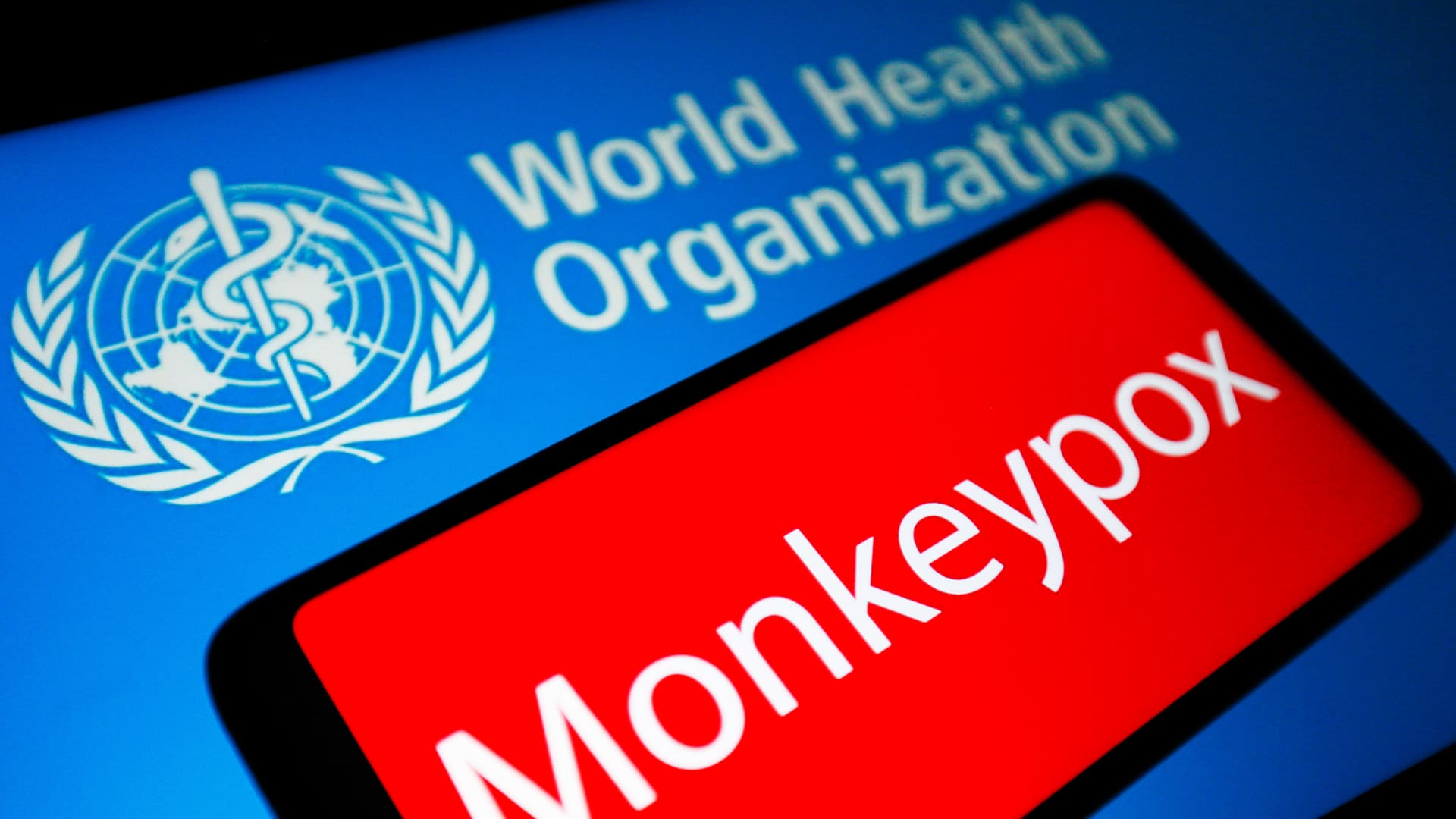Products You May Like
The World Health Organization on Saturday said the rapid spread of monkeypox across dozens of nations does not represent a global health emergency at this time.
WHO Director General Tedros Adhanom Ghebreyesus described monkeypox as an evolving health threat, however, and urged governments around the world to step up surveillance, contact tracing, testing and to make sure that people at high risk have access to vaccines and antiviral treatments.
The WHO convened its emergency committee to determine what level of threat monkeypox currently poses to the international community. At least 3,000 monkeypox cases across more than 50 countries have been identified since early May, according to WHO data.
The committee weighed whether or not to activate the WHO’s highest alert level in response to the outbreak, called a public health emergency of international concern. Covid-19 and polio are the only other virus outbreaks considered international public health emergencies by the WHO.
Although the WHO did not activate its highest alert level, Tedros said the outbreak raises serious concern because it is spreading rapidly in countries where the virus is not normally found. Historically, monkeypox has spread at low levels in remote parts of West and Central Africa. In the current outbreak, 84% of cases reported worldwide are in Europe, which is very unusual.
“What makes the current outbreak especially concerning is the rapid, continuing spread into new countries and regions and the risk of further, sustained transmission into vulnerable populations including people that are immunocompromised, pregnant women and children,” Tedros said in a press release Saturday.
The WHO director said research on the circulation of monkeypox in Africa has been neglected, which has put the health of people there and around the world at risk.
Monkeypox primarily spreads through close physical contact with a person who is infected or contaminated material such as shared clothing or bedsheets. The virus can spread through respiratory droplets if an infected person has lesions in their throat or mouth. This requires sustained face-to-face contact, however, and monkeypox is not believed to spread through aerosol particles.
Respiratory droplets fall to the ground quickly, while aerosol particles linger in the air for a longer period of time. Covid-19 spreads through aerosol particles, which is one of the reasons it is so contagious.
Monkeypox is in the same virus family as smallpox, but it has milder symptoms. Most people recover in two to four weeks without specific medical treatment.
The monkey outbreak is primarily affecting gay and bisexual men who said they’ve had sex with new or multiple partners, according to the WHO. Of the 468 monkeypox patients that disclosed demographic information, 99% are men. Most of them identified as men who have sex with men and had a median age of 37, according to the WHO.
The U.S. has reported 142 confirmed or suspected monkexpox cases across 23 states and Washington D.C., according to the Centers for Disease Control and Prevention. Health officials in the U.S. sought to raise awareness ahead of Pride month about how the virus spreads and what the symptoms look like so people can protect themselves from infection. Although men who have sex with men are at higher risk right now, anyone can catch monkeypox through close physical contact regardless of their sexual orientation.
Monkeypox often begins with symptoms similar to the flu, such as fever, headache, body aches, chills, exhaustion and swollen lymph nodes. A rash that looks like pimples or blisters then appears on the body. People are most infectious when they have the rash.
Some patients in the current outbreak have developed a rash only on the genitals or anus before showing any flulike symptoms, however, indicating it’s spreading through sexual contact in those cases, according to the CDC. In other cases, patients developed the rash without any flulike symptoms at all.
The U.S. has stockpiled two different vaccines and an antiviral treatment to fight smallpox and monkeypox. Jynneos is a two-dose vaccine approved for people ages 18 and older. The CDC generally recommends Jynneos over the one other option, ACAM2000, an older generation smallpox vaccine. Jynneos is considered safer than ACAM2000, which can have serious side effects.
The WHO has said mass vaccination is not recommended at this time to stop monkeypox. The U.S. is offering vaccines to people who are at high risk of exposure to the virus.
The international health agency has only applied the emergency designation six times since the rules were implemented in the mid-2000s. The last time WHO declared a global health emergency, before Covid, was in 2019 for the Ebola outbreak in eastern Congo that killed more than 2,000 people. The agency also declared global emergencies for the 2016 Zika virus, the 2009 H1N1 swine flu, and the 2014 polio and Ebola outbreaks.
